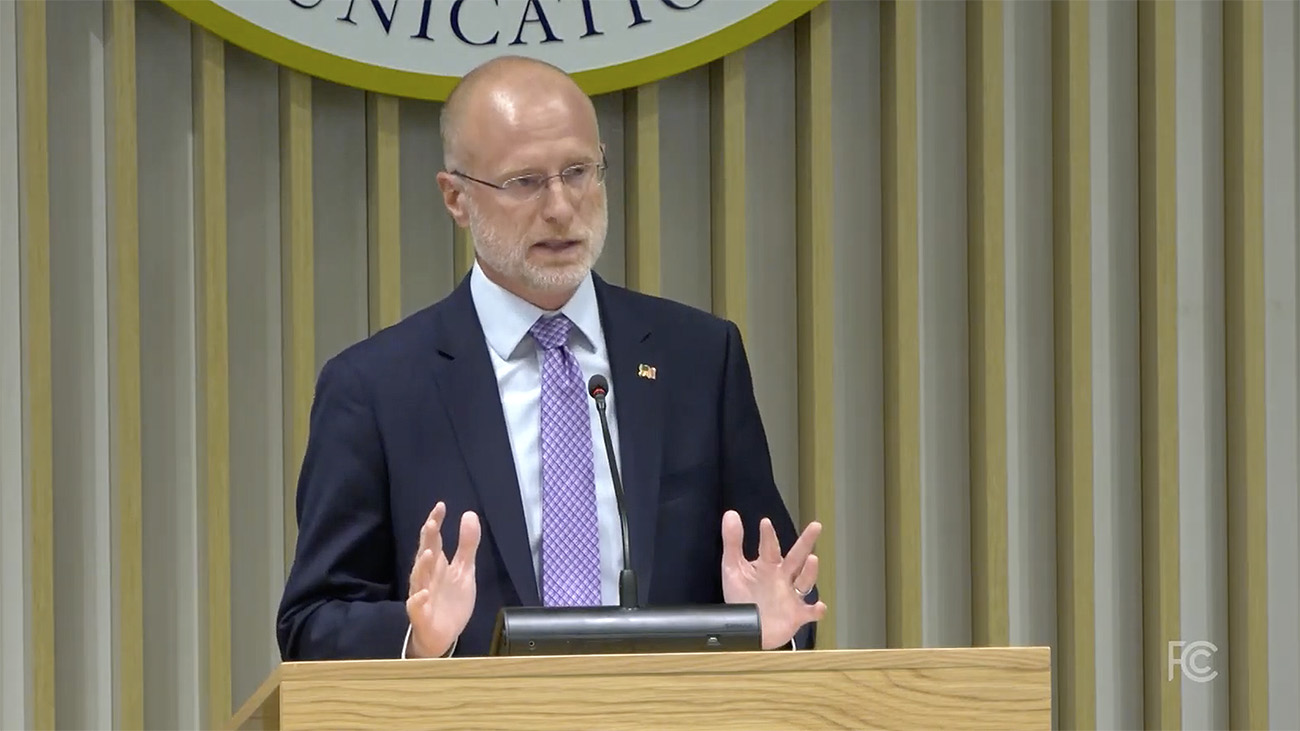FCC Chairman Carr accelerates deregulation push with packed summer agenda

Weekly insights on the technology, production and business decisions shaping media and broadcast. Free to access. Independent coverage. Unsubscribe anytime.
Federal Communications Commission Chairman Brendan Carr is maintaining an unusually aggressive regulatory schedule this summer, unveiling plans for two consecutive monthly meetings packed with deregulation measures and infrastructure streamlining initiatives.
The FCC’s July 24 open meeting will consider proposals to modernize copper line networks, ease utility pole access for broadband deployment and conduct the first spectrum auction in four years. This will be followed by an August meeting featuring eight agenda items… potentially a record for the month.
“Rather than dial things back, we’re ramping up our activities this Summer season to advance our Build America Agenda,” Carr wrote in a blog post published Tuesday.
The centerpiece of August’s agenda addresses what Carr calls “one of the biggest obstacles to building in America”: environmental review processes under the National Environmental Protection Act. The FCC will consider revamping its NEPA approach, citing federal agencies’ average 4.5-year timeline for pre-construction environmental impact statements, longer than it took to build the Golden Gate Bridge.
“All three branches of the government realize that the NEPA process is broken,” Carr stated, referencing 2023 Congressional reforms, President Trump’s post-inauguration directive to streamline NEPA processes, and a unanimous Supreme Court ruling to curb litigation abuse.
The satellite application process has also drawn Carr’s attention.
He noted that regulatory review now takes longer than the actual engineering and launching of spacecraft. Under his leadership, the FCC’s Space Bureau has reduced the application backlog by half, and August’s meeting will consider eliminating approval requirements for activities deemed low-risk to public safety.
These changes are expected to benefit emerging Ground-Station-as-a-Service business models, allowing multiple satellite systems to share infrastructure and reducing costs for space startups.
The commission will also address undersea cable infrastructure, which carries approximately 99 percent of global internet traffic. The August vote will simultaneously streamline submarine cable licensing while implementing new protections against foreign adversary threats, particularly from China.
The FCC will examine its emergency alert systems. The Emergency Alert System and Wireless Emergency Alerts, built on frameworks that are 31 and 13 years old respectively, will undergo “ground-up re-examination” to leverage newer technology for life-saving communications.
The commission will also review its Disaster Information Reporting System, which collects real-time data on network outages during major disasters. While valuable for recovery efforts, the reports can be time-consuming to produce, drawing resources from emergency response.
Business data services regulation will face further deregulation, expanding efforts begun under former Chairman Ajit Pai. The FCC will consider proposals to reduce government oversight of broadband services purchased by businesses, arguing that current regulations discourage network upgrades.
The August meeting will conclude with the elimination of 98 obsolete broadcast rules totaling 5,117 words, including 1970s-era regulations specifying testing equipment requirements for radio stations.
Carr indicated the pace will continue accelerating into fall, citing the passage of the “One Big Beautiful Bill” and restored spectrum auction authority as drivers for increased activity.





tags
Brendan Carr, Deregulation, FCC
categories
Broadcast Business News, Featured, Policy